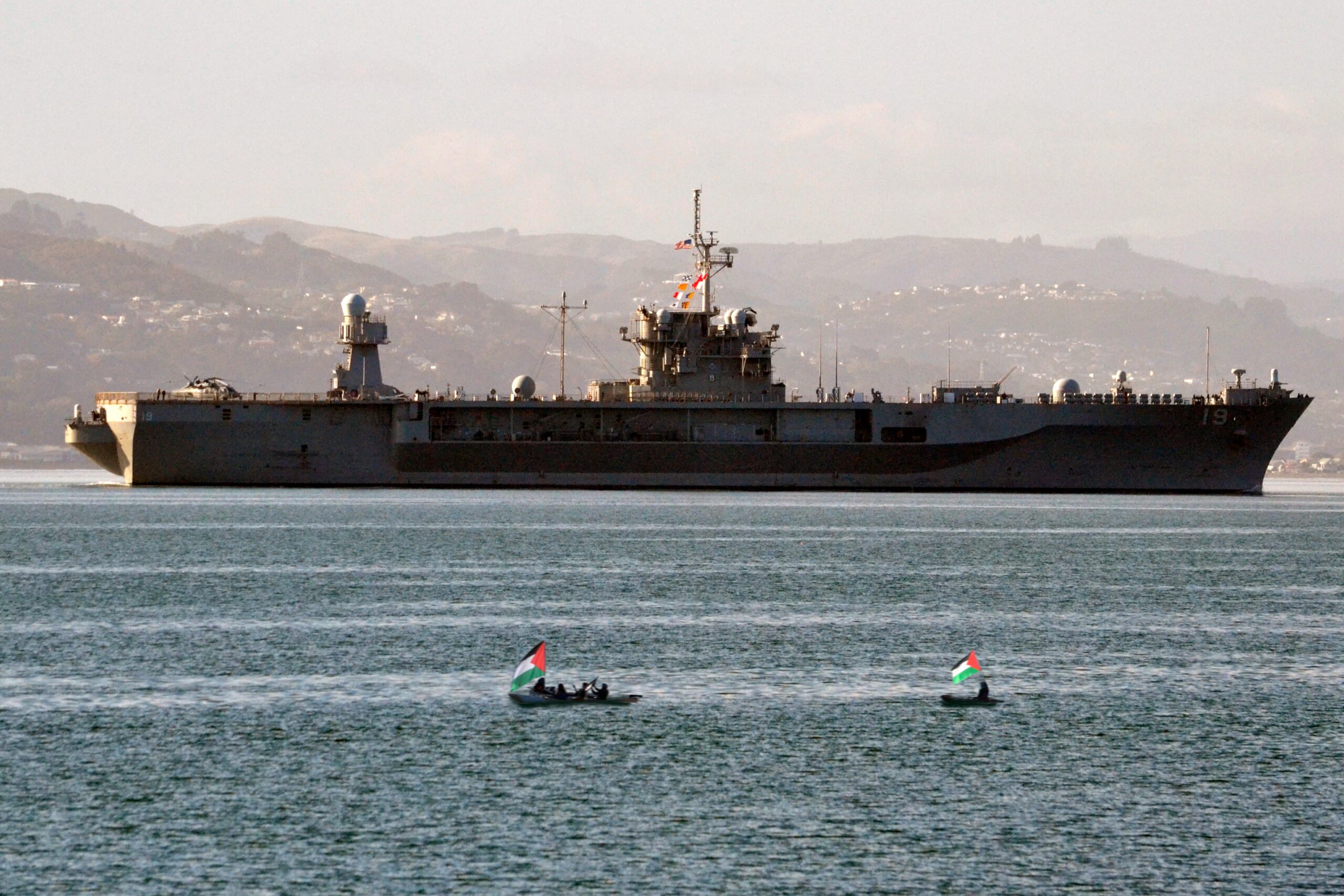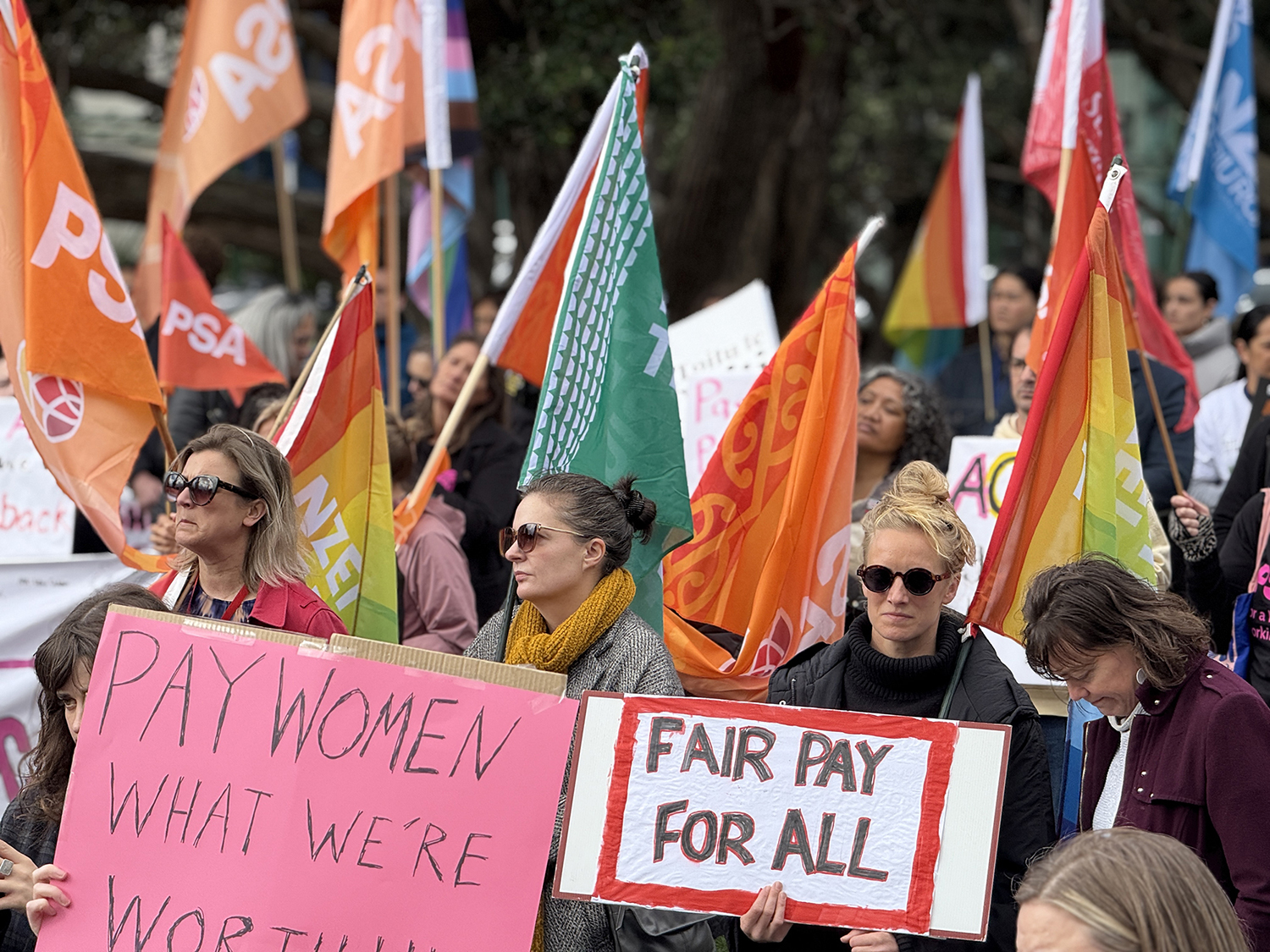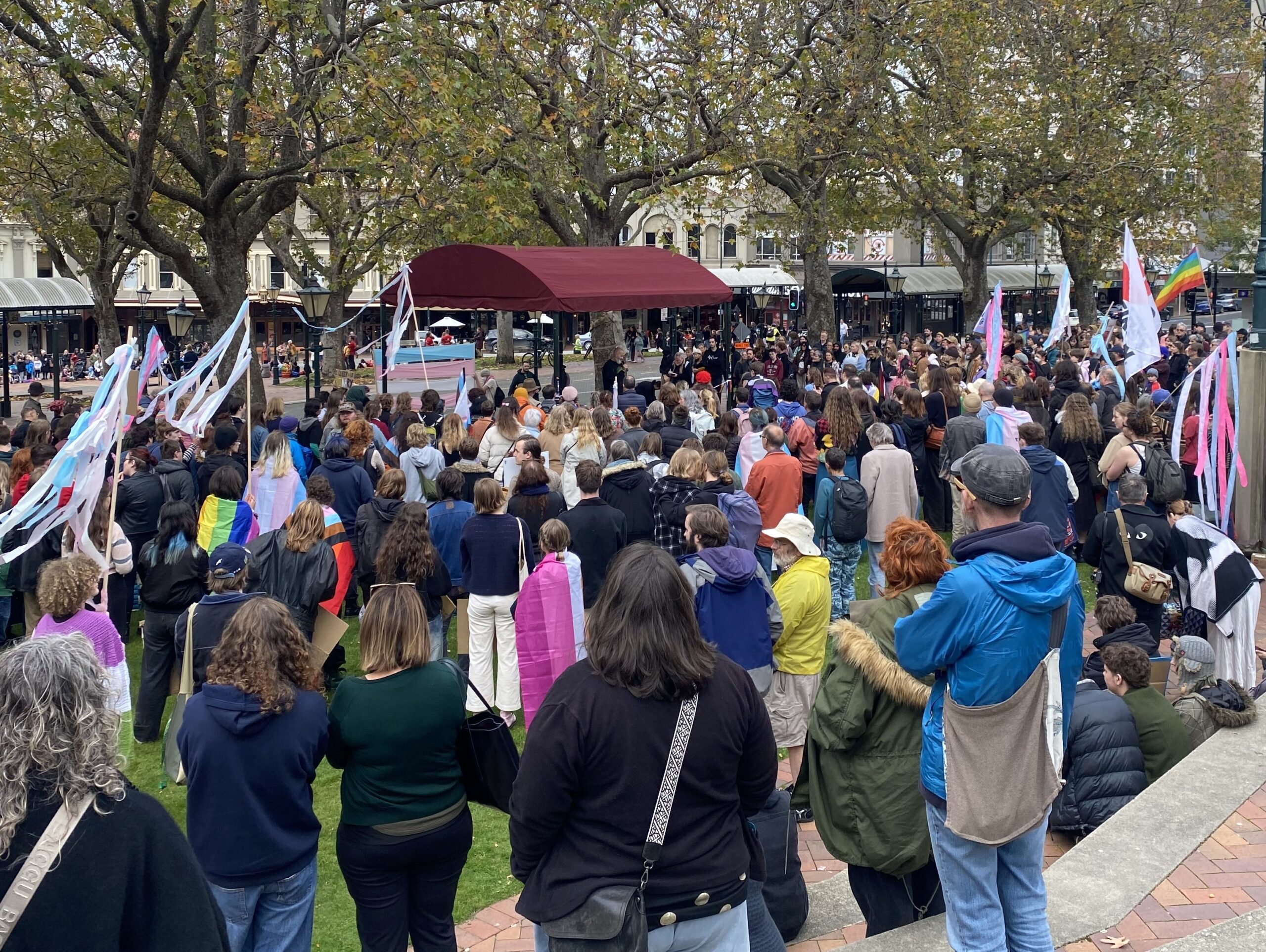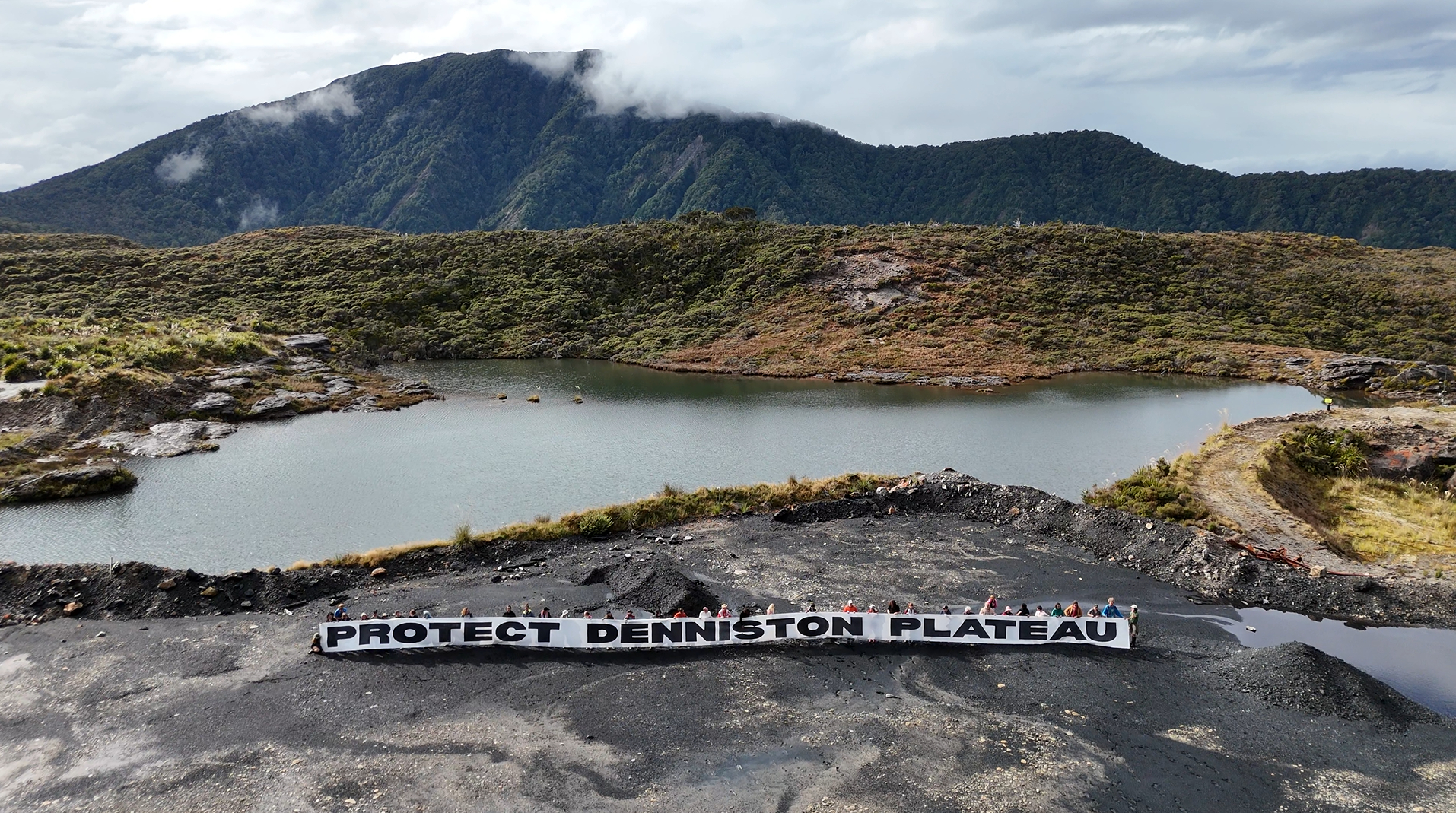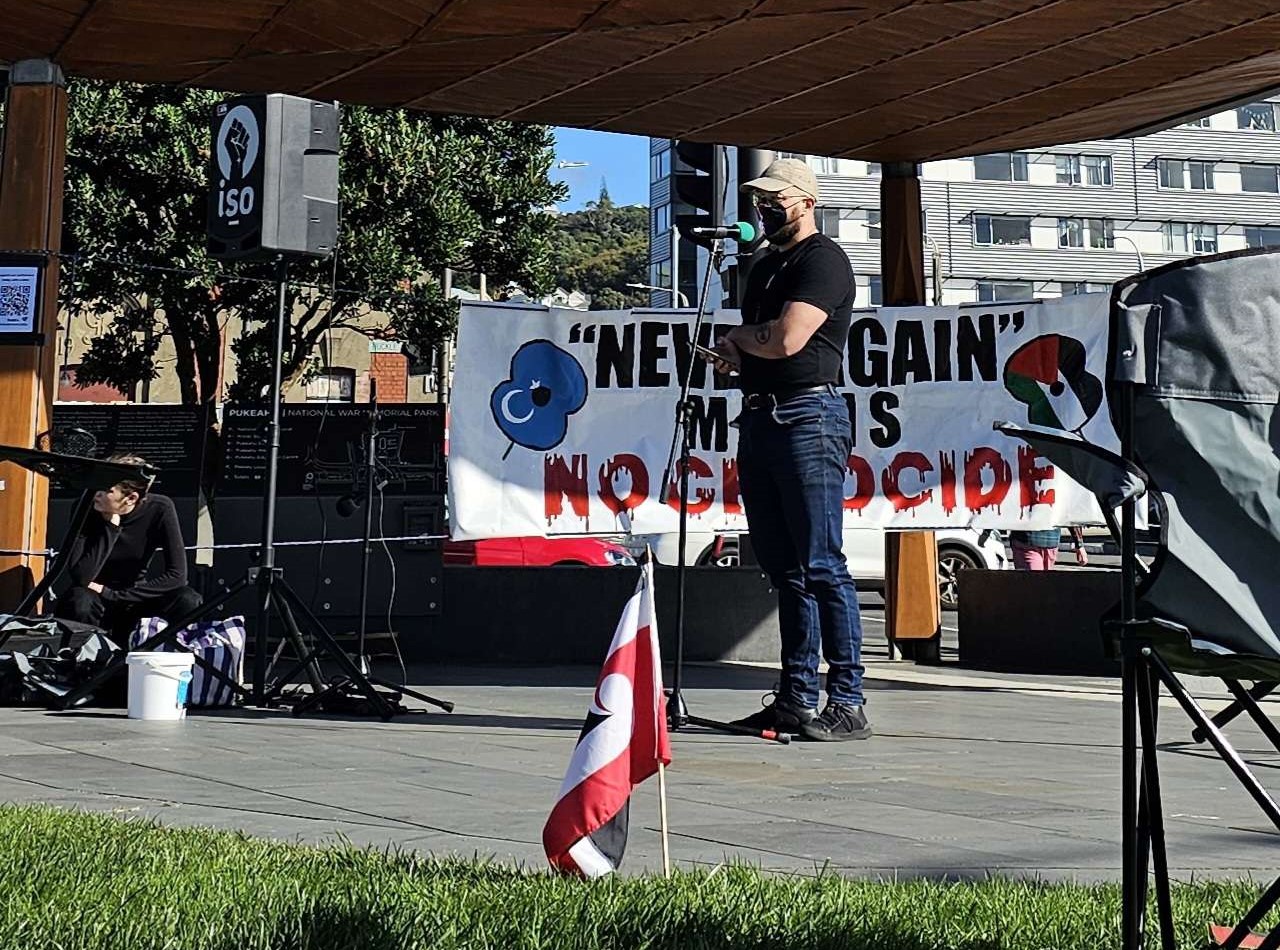“We are tangata whenua of this land. We are Māori people forced into a European system.”
On 29 December 2020 prisoners at Waikeria Prison protested, lighting fires in an exercise yard before climbing onto the roof of the jail. After six days the protest came to an end with the surrender by the remaining 16 protesters, which was on condition that Māori Party co-leader Rawiri Waititi would be present to ensure the safety of the prisoners.
Waititi told the New Zealand Herald, “These men belong to whānau. They are fathers, brothers, sons and uncles.” He said the inmates deserved the right to humane treatment, fresh water, food and clean clothing.
“They are clear that this is not a riot, it is a protest for their human rights for all inmates past and present.”
In another edition the Herald reported Waiititi saying, “They have achieved what they set out to do when they embarked on bringing attention to their maltreatment in prison.”
“When injustice is normalised, defiance and protest is necessary. These men are the product of such injustices and through their protest they have changed the face of Corrections forever.”
“These men are not animals, they are humans; they are brothers, fathers and sons and are deserving of better treatment.”
During the six-day protest, police fired sponge bullets at the protesters and the Department of Corrections withheld food and water from the prisoners as a “negotiation tactic”.
The protesting prisoners released a statement to People Against Prisons Aotearoa which was circulated in the media, detailing the conditions that caused them to protest:
“Our drinking water in prison is brown. We have used our towels for three straight weeks now. Some of us have not had our bedding changed in five months. We have not received clean uniforms to wear for three months – we wear the same dirty clothes day in and day out. We have to wash our clothes in our dirty shower water and dry them on the concrete floor. We have no toilet seats: we eat our kai out of paper bags right next to our open, shared toilets.”
Whānau of the prisoners say that the prisoners were denied access to complaint forms and with no other option chose to take action.
Alan Whitley, president of the Corrections Association, the union that represents corrections staff, told news media that the building that was destroyed was “past its use-by date” and that corrections staff worked “in horrible conditions” there.
Prisons take a toll not only prisoners but on prison workers. Workers and prisoners are on the same side in the class war.
In the inhumane conditions of New Zealand prison facilities, in many instances the treatment of prisoners amounts to torture, including the use of solitary confinement, restraints, the use of force, such as pepper spray, and “control and restraint” techniques which have resulted in the death of prisoners.
In Waikeria 67 percent of the prison population was Māori. Māori are disproportionately incarcerated. The Department of Corrections strategy, Hōkai Rangi, aims to use te ao Māori to reduce incarceration rates. But before colonisation Māori did not have prisons. Prisons are not tikanga. Colonisation forced the British punitive justice system on Māori.
Prisons and police are part of the capitalist state machine in a class-divided society from which gangs are born out of a cycle of violence and incarceration. Wherever people are treated unjustly — being denied a benefit, becoming homeless, in unsafe work conditions, poverty — it is a result of capitalism. When people are trapped in a situation with no means of escape they revolt. To quote Martin Luther King Jr., “a riot is the language of the unheard.”
Prisoners need their voices to be heard and we must respond. We must build a world where the conditions that produce crime are abolished, and where harm does occur it is dealt with in ways that heal.
Waikeria Manifesto*
We are not rioting.
We are protesting.
We have showed no violence towards Corrections officers – none whatsoever – yet they show up here in force armed with guns and dogs to intimidate us.
We are the ones that are making a stand on this matter for our future people. Showing intimidation to us will only fuel the fire of future violence. We will not tolerate being intimidated any more.
Our drinking water in prison is brown. We have used our towels for three straight weeks now. Some of us have not had our bedding changed in five months. We have not received clean uniforms to wear for three months – we wear the same dirty clothes day in and day out. We have to wash our clothes in our dirty shower water and dry them on the concrete floor. We have no toilet seats: we eat our kai out of paper bags right next to our open, shared toilets.
These are only very few of the reasons for the uprising.
We are tangata whenua of this land. We are Māori people forced into a European system. Prisons do not work! Prisons have not worked for the generations before! Prisons just do not work. They keep doing this to our people, and we have had enough! There is no support in prison, all the system does is put our people in jail with no support, no rehabilitation, nothing. We have had enough.
This is for the greater cause.
*Published by PAPA


